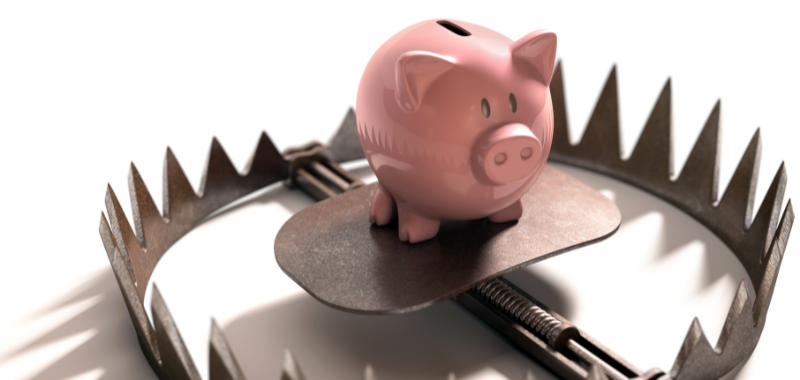
Why Trading Psychology Matters More Than Strategy
A beginner might assume psychology is “soft stuff” compared to technical analysis or market news. But trading is a game of probabilities, not certainties. Even the best setups will sometimes fail. What makes the difference is how you respond when they do.
- Discipline creates consistency: Without discipline, you’ll constantly change strategies or abandon your plan after a single loss.
- Psychology protects capital: Poor decisions driven by emotion often lead to oversized losses.
- Mindset drives longevity: Success in trading isn’t about one winning trade, but about staying in the game long enough to let your edge play out.
A professional trader understands that the market cannot be controlled. What can be controlled, however, is how you react to it.
Fear in Trading: The Silent Account Killer
Fear shows up in many different forms. Recognizing it is the first step to controlling it.
Types of Fear Traders Experience
- Fear of Losing Money – The most common fear. It causes hesitation, prevents you from taking good setups, or makes you close trades too early.
- Fear of Missing Out (FOMO) – Seeing the market move without you and jumping in too late, usually at the worst possible time.
- Fear of Being Wrong – Refusing to admit mistakes, avoiding stop-losses, or holding losing positions in denial.
- Fear of the Unknown – Beginners especially feel overwhelmed by uncertainty, leading to over-analysis and “analysis paralysis.”
How to Overcome Fear
- Reduce Position Size: Fear often comes from risking too much. Lowering your risk per trade makes losses manageable.
- Pre-define Risk: Always use stop-loss orders so you know the maximum you could lose before you even enter.
- Focus on Probabilities: Accept that losses are part of the game. Judge yourself on how well you follow your process, not on single trade outcomes.
- Build Experience: The more trades you execute according to a plan, the less intimidating the market becomes.
Greed in Trading: The Silent Saboteur

If fear keeps traders on the sidelines, greed pushes them to do too much.
How Greed Shows Up
- Overtrading – Entering too many trades in search of quick profits.
- Ignoring Rules – Stretching targets, moving stop-losses, or trading without confirmation signals.
- Chasing Profits – Increasing lot sizes after a win, assuming you’re “invincible.”
- Holding Too Long – Staying in winning trades beyond your plan, only to watch profits vanish.
How to Control Greed
- Use a Trading Journal: Reviewing past trades makes it painfully clear how greed costs you money.
- Stick to Daily/Weekly Targets: Once you hit your goal, stop trading. Overtrading often erases gains.
- Detach from Money: Think in terms of percentages, not dollars. This helps reduce emotional attachment.
- Celebrate Discipline, Not Profits: Reward yourself for following the plan, not for how much you made.
The Role of Discipline in Trading Psychology
Discipline is what balances fear and greed. It’s the ability to follow your plan even when emotions are pulling you in different directions.
How to Build Discipline
- Have a Written Trading Plan – Your plan should detail entries, exits, risk management, and position sizing.
- Create a Trading Routine – Trade at consistent times and review your performance regularly.
- Keep a Journal – Record not just numbers but also your thoughts and emotions. Over time, you’ll spot patterns.
- Practice Patience – Learn to wait for your setup. A good trader trades less, not more.
Discipline in Action
Imagine this: Your plan says to risk only 2% per trade. You’ve just had three losses in a row. Greed says, “Double your position to make it back faster.” Fear says, “Stop trading completely.” Discipline says, “Stick to the plan. Take the next valid setup with the same risk.” The disciplined trader survives where others fail.
Practical Tools to Improve Trading Psychology
- Meditation and Mindfulness: Even five minutes a day can help clear your mind and reduce stress before trading.
- Visualization: Picture yourself executing trades calmly and according to plan. This mental rehearsal strengthens discipline.
- Loss Limits: Set a daily or weekly loss cap to prevent revenge trading.
- Scheduled Breaks: Step away from charts if you feel overwhelmed. Emotional decisions rarely end well.
- Community Support: Engage with other traders (like our community) to share experiences and stay accountable.
Common Mistakes Traders Make With Psychology
- Trying to Eliminate Emotions: You can’t get rid of emotions — you can only manage them.
- Believing Discipline = Willpower: Discipline is built through habits and systems, not brute force.
- Overconfidence After Wins: Greed often hides behind the feeling of being “on a streak.”
- Giving Up After Losses: Fear convinces traders they’re “not cut out for this.” The truth is, losses are part of the journey.
Case Study: Fear and Greed in Action
Consider a trader named Sarah. She enters a forex trade with a stop-loss in place. The market moves against her, and instead of closing the trade at her stop, she widens it — “just in case it bounces back.” That’s fear of losing money and greed for more profits at play. The trade eventually wipes out 10% of her account.
Contrast that with John, who takes the same trade. It hits his stop, and he calmly logs the result in his trading journal. He knows one loss doesn’t define him. Over the next 50 trades, his consistency gives him a 55% win rate — more than enough to stay profitable.
The difference? Not strategy, but psychology.
Final Thoughts
Fear and greed will never disappear. They are natural human emotions, and the market is designed to trigger them. The key is not to suppress them but to recognize, manage, and act in spite of them.
By understanding how fear and greed influence your decisions, and by building habits of discipline and self-awareness, you can transform trading from an emotional rollercoaster into a structured, professional pursuit.
Action Step: This week, write down your top three emotional triggers in trading. Create one rule or habit to counter each trigger. For example, if FOMO tempts you, make it a rule never to enter a trade without a signal confirmation. Small steps like this create long-term mastery.

